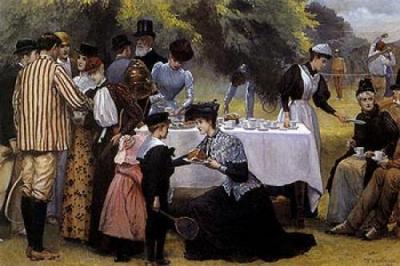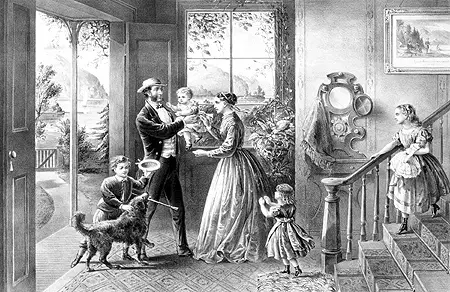Victorian Era Gender Roles has been a much-discussed subject even in literature. According to Susan Kent, men possessed the capacity for reason, action, aggression, independence, and self-interest [thus belonging to the public sphere].
Women inhabited a separate, private sphere, one suitable for the so-called inherent qualities of femininity: emotion, passivity, submission, dependence, and selflessness, all derived, it was claimed insistently, from women’s sexual and reproductive organization. Also read Women’s education in the Victorian age
Inequality in Gender Roles
Victorian Era was not characterized by equality between man and woman, but by the apparent difference between them. The late 19th century from 1837-1901 is famous as the Victorian era in England.
This was the era of Queen Victoria’s reign in England. The gender roles in Victorian age can be understood from the varied roles ascribed to the two genders, the male, and the female.

The patriarchic system was the norm and women usually led a more secluded, private life. Men, on the other hand, possessed all kinds of freedom. The man was naturally the head of the family and the guardian of family members. He was the protector and the lord. He was strong, brave and hard-working.
Women were shy, weak and emotional compared to men. She was supposed to be pure and quiet. Feelings such as anger or impatience were never expected out of them. She was never aggressive. The concept of ideal women was extremely important. She was pure and clean.
Women were not assigned responsible jobs in general. She was to give birth to children and look after the house. They could neither vote nor sue. Women could not also own property. Women had no legal say. The property of a married woman went to her husband even if the marriage ended up in a divorce.

It was the responsibility of the women to secure happiness at home whereas the men were to protect and guard the household and its members. Organizing and instructing the servants was another job for the females. Both men and women were discouraged from using cosmetics or undergarments. However, restrictions on women were severe because their bodies were held to be pure.
Being a prostitute meant being unclean in the Victorian era. This was an excuse for the husband to end the marriage with his wife. Women could not have sex with any other men except their husband. However, this rule did not apply to men. Men were held superior in all spheres of life. Many women were treated as a necessity for men.
Women were discouraged from remaining unmarried. This was because she needed protection as she was weak and pure. A married woman was completely under the guidance and supervision of her husband. Motherhood was an achievement in the life of women, but only formally. Mothers had to be submissive and meek.
The highest job that women could hold was that of a teacher while men were given freedom to choose what they wanted to do. Not only processes such as industrialization, but also feministic movements of those times helped women to come out to the scene. Later, as time passed, women occupied the equal status as that of men.
Victorian men Gender Roles
Victorian men wanted women to possess lady-like feminine qualities as well as innocence; otherwise, they would not be of marriage potential. This expectation men had for women resulted in women preparing for marriage and it gave women no freedom.
Victorian men’s desires pressurised women to be the ideal Victorian woman that society wanted them to be. If a woman did not meet the expectations of the Victorian male, she would end up spouseless.
Just as men expected few things of an ideal Victorian women, the women and the rest of society had expectations for the ideal Victorian man.
Being an ideal Victorian man involved detaching oneself from the home and its feminine comforts and achieving ‘a level of material success in the wider world.
This included ‘the recognition of manhood by one’s peers”. This meant that Victorian men not only had to gain women’s respect before marriage, but also had to impress the rest of society and their male gender. Men also had social pressures because their peers scrutinized their success. However, this was nowhere what the Female gender faced.